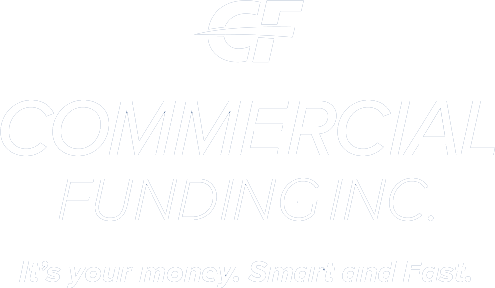There are many ways to get cash to run a business, and each method has associated benefits and pitfalls. The key to determining the best option for your business, is to look at the various options, determine the specific needs for your business and business cycles, evaluate which best fits your needs and find a reputable partner that can provide the best source of cash for your company.
This post details some of the types of funding options available and outlines some of the pros and cons of each. You can use this information to determine which option is best for your company at any given time. Before you evaluate each option, it’s a good idea to know the answers to the following questions as they can help guide you in the direction best for you.
- How quickly do you need the cash?
- What will the money be used for?
- Are you willing to give up equity in the business in exchange for the funding?
- What collateral do you have to secure the financing?
- What is your current credit worthiness?
Choose From These Small Business Financing Options
The answers to the questions above will help you determine which financing option below might work best for your needs.
- Angel Investors
- Crowdfunding
- Bank Loan
- Independent Commercial Lenders
- Merchant Cash Advance (MCA)
- Invoice Financing
Angel Investors
Capital infusion comes from an investment typically by wealthy friends or family members. For the general small business population, this is not a widely available option. While terms of an angel investment can be flexible and are not strictly regulated, often the investment comes at the price of an ownership percentage and a new partner. Business owners must decide if the trade-off is worth the amount of cash infusion.
Crowdfunding
Crowdfunding is an investment vehicle whereby a number of small investors pool their money to invest in a business. Crowdfunding has been used by many start-ups with new or unique consumer product ideas. The number of investors can be quite high, but the average dollar per investor is low. Based on the structure of the crowdfunding agreement, the business owner is often on the hook to deliver a product or service to each investor and must pay a portion of the proceeds to the funding platform. Many companies have benefited from crowdfunding, but some have also failed if they were unable to deliver their products to the investors that supported their venture. This process is often difficult to coordinate and may subject the business to unanticipated legal exposure.
Bank Loan
Banks are abundant and come in many forms – large international banks, small regional banks, community banks, etc. – but most banks require similar documentation and use the same basic credit approval processes. They look at your company history, evaluate your credit score and tax returns and if you are deemed credit worthy, they offer you a rate, terms and a payment schedule. Their credit standards can be high, approval times can be long, and terms not very flexible. If you do get approved, you get a one-time cash influx, the loan is a liability on your balance sheet and you are obligated to make monthly payments for the life of the loan. Further, if you require flexibility down the road banks are often unwilling to accommodate changes you may need to continue to run your business.
Independent Commercial Lenders
Many independent lenders don’t have the regulatory restrictions of banks because most independent lenders don’t take deposits. They can often be more flexible than banks when it comes to credit approvals and loan terms. They often take assets as collateral on their loans (equipment, property, etc.) and can offer multiple types of loans (refinancing, debt consolidation). But like banks, the loans from independent lenders are still one-time infusions of cash, liabilities on your balance sheet and require monthly installment payments.
Merchant Cash Advance
Merchant cash advances (MCA) are typically advances on your daily cash collections, paid to you in a large lump sum. Repayment however, is drafted daily either from your bank account or from your credit card processing account. While MCAs are not traditional loans, they come with high interest rates that are often impossible to calculate, mid-range contract terms, automatic renewals and can be very difficult to stop once started. While the influx of cash is quick, the long-term effects can be quite expensive.
Invoice Financing (Factoring)
Invoice factoring, also known as accounts receivable financing, involves the sale of your accounts receivable (invoices) to a third-party. The factoring company pays you a percentage of the amount invoiced upfront and then collects the money owed on those invoices, paying you the residual amount less fees. This means you receive payment on those invoices faster than if you wait for your customers to pay you directly. This type of funding provides reliable consistent Cash flow which replenish on a regular basis as you sell your ongoing invoices to the factoring company, so it’s a reliable source of ongoing cash.
In short, there are plenty of small business financing options. Commercial Funding Inc. can help you evaluate your options and provide insight on what might work best for you and your company. Have questions? Contact us and we’ll walk you through some options.




